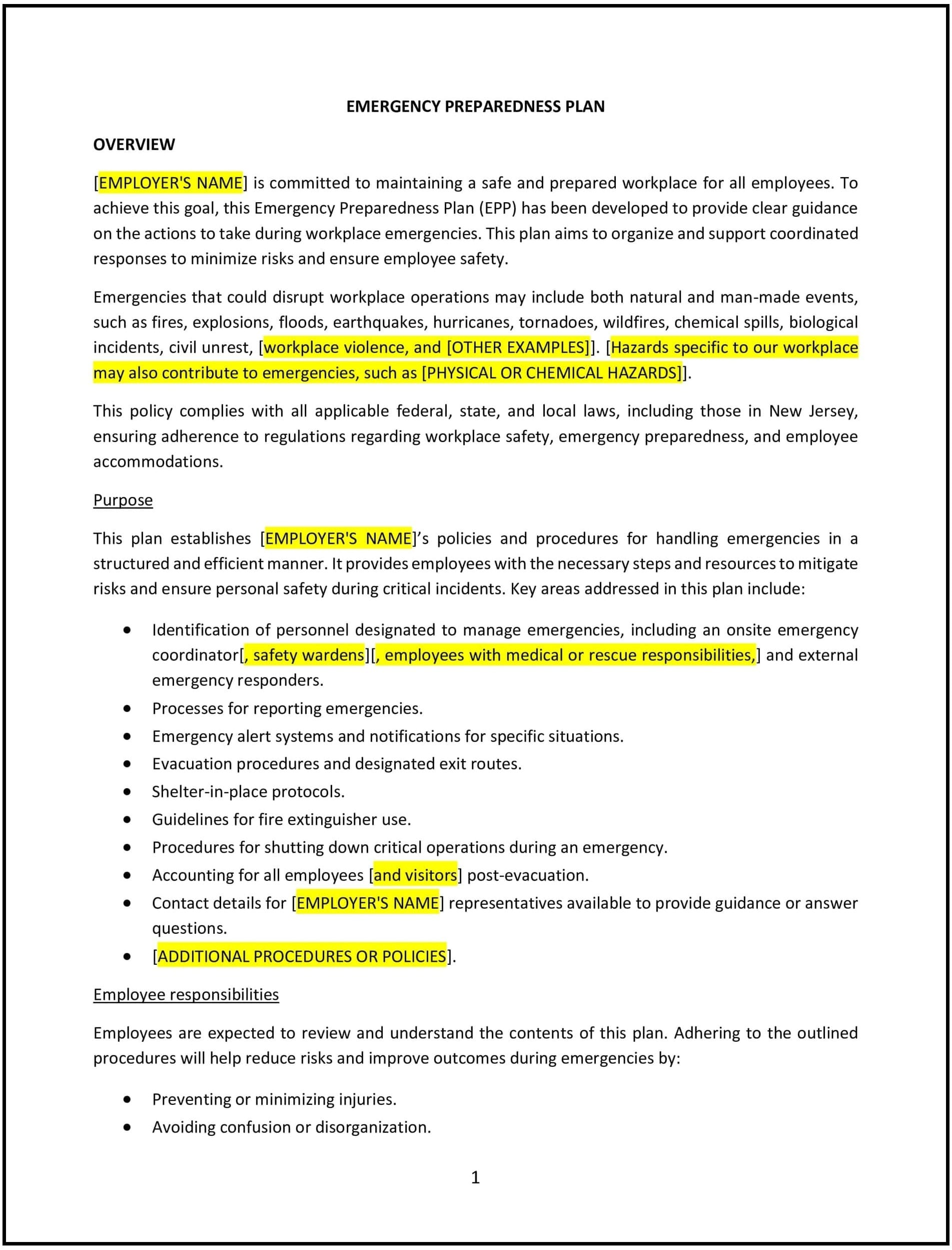Emergency preparedness plan (New Jersey) policy: Free template
Got contracts to review? While you're here for policies, let Cobrief make contract review effortless—start your free review now.

Customize this template for free
Emergency preparedness plan (New Jersey)
An emergency preparedness plan helps New Jersey businesses establish clear procedures for responding to emergencies, such as natural disasters, fires, medical incidents, and security threats. This policy outlines evacuation procedures, emergency contacts, employee responsibilities, and business continuity strategies. It also sets expectations for training and regular drills to ensure readiness in crisis situations.
By adopting this policy, businesses in New Jersey can protect employees, minimize operational disruptions, and respond effectively to emergencies.
How to use this emergency preparedness plan (New Jersey)
- Identify potential emergencies: Outline the types of emergencies that may impact the business, such as hurricanes, power outages, workplace violence, and hazardous material incidents.
- Establish emergency roles and responsibilities: Assign responsibilities to key personnel, including emergency coordinators, evacuation leaders, and first aid responders.
- Define evacuation procedures: Provide clear exit routes, designated assembly points, and protocols for assisting individuals with mobility challenges.
- Create a communication plan: Establish methods for notifying employees of emergencies, such as text alerts, phone trees, or PA system announcements.
- Develop shelter-in-place guidelines: Outline procedures for remaining inside the workplace during events such as severe weather or security threats.
- Provide medical emergency response instructions: Include steps for handling medical incidents, such as CPR guidelines, emergency contacts, and locations of first aid kits.
- Address business continuity planning: Detail how the business will continue critical operations during and after an emergency, including remote work or backup facility arrangements.
- Review and update: Regularly assess the policy to align with new risks, employee feedback, and New Jersey emergency response guidelines.
Benefits of using this emergency preparedness plan (New Jersey)
This policy provides several benefits for New Jersey businesses:
- Protects employee safety: Establishes clear emergency procedures to prevent injuries and fatalities.
- Minimizes business disruptions: Provides a structured approach to maintaining operations during crises.
- Improves response coordination: Assigns roles and responsibilities for efficient emergency management.
- Strengthens communication: Ensures employees receive timely alerts and instructions during emergencies.
- Encourages preparedness training: Promotes regular drills and training to enhance employee readiness.
Tips for using this emergency preparedness plan (New Jersey)
- Communicate the plan clearly: Ensure all employees understand emergency procedures and response expectations.
- Conduct regular drills: Schedule fire drills, active threat exercises, and severe weather preparedness training.
- Keep emergency supplies accessible: Stock first aid kits, flashlights, and emergency food and water supplies in designated areas.
- Establish an off-site contact: Identify a backup point of contact for employees in case workplace communications fail.
- Review the policy regularly: Update the plan to reflect changes in business operations, employee feedback, and New Jersey emergency preparedness guidelines.